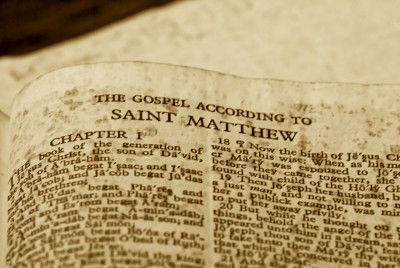Matthew 27:32-38 Place
of a Skull
“This is Jesus, the King of the
Jews.” The sign over
Jesus’ head at His crucifixion, Matthew 27:37
 |
| Rembrandt's Raising of the Cross, 1633 |
For dogs encompass me; a company of evildoers encircles me; they have pierced my hands and feet—I can count all my bones—they stare and gloat over me; they divide my garments among them, and for my clothing they cast lots. (Psalm 22:16-18)
He Himself bore our sins in his body on the tree, that we might die to sin and live to righteousness. By his wounds you have been healed. (1 Peter 2:24).
The Jewish carpenter from Galilee has suffered ridicule,
injustice, and abuse. His disciples
have abandoned him. He has
survived a torture so intense that it usually kills its victims. It is no wonder he can barely
walk. Therefore the soldiers, as they went out from the governor’s headquarters, found a man of Cyrene, a city along the northern coast of
Africa. Simon was
his name (v. 32). Even though Simon lived in
Africa, he had a very Jewish name. And Acts 2:10 and 6:9 speak of the Jews from
Cyrene. He was most likely one of the Jews that lived abroad and had traveled
back to Jerusalem to participate in the Passover. They compelled
this man to carry his cross (v. 32).
Mark’s gospel names Simon’s two sons, Alexander and Rufus
(Mark 15:21). Was it because
Alexander and Rufus were known to the church of Mark’s day? Is this the same Rufus that Paul
greets in Romans 16:13? Is it the
same Alexander of Acts 19:33? We
don’t know. But interestingly,
there is a possibility Simon’s sons were known in the early church.
And when they came to a place
called Golgotha (which means Place of a Skull), they offered him wine to drink,
mixed with gall, (v. 34).
Certainly this is a fulfillment of Psalm 69:21. Mark 15:23 mentions that the wine was
mixed with myrrh, which was used to prepare a body for burial (John
19:39). Luke 23:36 seems to
imply that the offering of the wine was not an act of pity but another mocking
gesture.
 |
| A possible location in Jerusalem for the "Place of a Skull". One can see the image of a skull in the rocks here. Today this hill hosts a bus station. |
Regardless of motive, when Jesus tasted it, he
would not drink it, (v. 34).
Our Lord, who willingly drank from the cup of the wrath of God (26:42)
would not drink from the cup that would lessen the pain of God’s wrath. As Charles Ryrie says in his
study Bible, “Jesus refused [the wine], preferring to meet His death with all
His faculties unimpaired.”
Matthew, like the other gospel writers, offers no details,
no gory word pictures, no cries of agony, of the moment of crucifixion, other
than the stripped down words, they crucified him
(v. 35). Like flogging,
crucifixion was a common punishment used by the Roman authorities; the gospel
writers needed to remind no one of the excruciating details. The soldiers divided his
garments among them by casting lots (v. 35) and thus fulfilled
David’s prophecy of Psalm 22:18.
Maybe the disciples would try one last heroic effort to
rescue Jesus, the authorities may have thought. After all, violence broke out when they arrested Jesus (see
26:51). Therefore the soldiers sat down and kept watch over him there (v. 36). As Jesus lost blood and was slowly
suffocating, the chief priests and Pilate were arguing about wording on the
sign over his head where they put the
charge against him, (v. 37).
John 19:19-22 gives the details of the argument while Matthew provides
only the final decision: “This is Jesus, the King of the
Jews,” (v. 37).
Then two robbers were crucified
with him, one on the right and one on the left, (v. 38). Jesus likely took the place of the
robbers’ co-conspirator, Barabbas, both literally and redemptively. He took our place literally and redemptively.
“For God has done what the law, weakened by the flesh, could
not do. By sending his own Son in the likeness of sinful flesh and for sin, he
condemned sin in the flesh, in order that the righteous requirement of the law
might be fulfilled in us, who walk not according to the flesh but according to
the Spirit,” (Romans 8:3-4).
He has done what the best of our good works could not do. He has reconciled us to God. He did not die
in a peaceful drug-induced sleep.
He took evil head on; He suffered
and died for our sins so that we may be redeemed to our God. What an awesome Savior!

